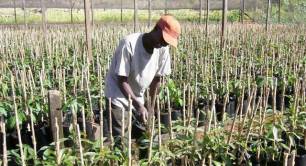Slashed UK aid budget throws £160m impact investing programme into uncertainty
The future of a multi-million pound, UK government-funded programme that supports impact investing initiatives worldwide is in the dark – with its budget for the next financial year, starting in just a few days on 1 April, still unconfirmed.
Tom Adlam, who runs the The Impact Programme, told Pioneers Post on Monday that he did not know how much money it would get from the UK’s Foreign, Commonwealth & Development Office (FCDO).
Budget cuts would mean less money for the programme’s grantees – 12 influential organisations that shape impact investing worldwide, including the New York-headquartered Global Impact Investing Network, the UK’s Impact Investing Institute, the Impact Management Project and the Global Steering Group for Impact Investment.
The Impact Programme was created in 2012 by the UK’s Department for International Development (which last year merged with the UK’s foreign office to become the FCDO). With a budget of £157.8m over 23 years, it aims to help grow impact investing in sub-Saharan Africa and south Asia.
Last year, the Impact Programme, which is managed by the global consultancy firm Palladium, received around £4m from the FCDO for its market-building grants programme, Adlam said.
FCDO has not publicly signalled that it would cut its funding for that programme.
But the UK’s overall aid budget is facing steep cuts: in November, the chancellor announced a ‘temporary reduction’ in UK aid from its legally binding commitment of 0.7% of gross national income, down to 0.5% of GNI, citing economic pressures due to the Covid-19 pandemic.
The 2021 budget, of around £10bn, is a reduction of £4.5bn compared to 2019, according to analysis by the Center for Global Development.
The key risk to the size and focus of the programme in FY 21-22 is due to budget decisions taken by ministers
An annual review of the Impact Programme published in February 2021 states that the “key risk to the size and focus of the programme in FY 21-22 is due to budget decisions taken by ministers in light of the reduction in the UK [official development assistance] budget from 0.7% to 0.5% of GNI.”
The programme is especially important, said Adlam, because few organisations support the development of the impact investing ecosystem. Its work had been “very effective”, with impact investing assets under management currently growing at 30-40% per annum (though he acknowledged this was also due to other factors). Spending money “to leverage more money into the sector” was “both an efficient and an effective way of using the aid budget”, he added.
‘Critical importance’
Information on how much money the 12 grantees receive from the programme is not publicly available, but data submitted to the International Aid Transparency Initiative show that commitments from the Department for International Development (DFID) to the Global Steering Group for Impact Investment (GSG) totalled £373,000 in April-December 2020, and lists commitments of £470,000 for 2021 and £530,000 for 2022 (its total income for 2019, the last year for which accounts are available, was £2.3m). GSG declined to comment further.
The support of DFID and now FCDO during the first year of the Impact Investing Institute’s existence has been of critical importance
Tthe Impact Investing Institute told Pioneers Post that the loss of any funding would be “regrettable” but that its “broad base of funders” – including the UK’s Department for Digital, Culture, Media and Sport and the City of London Corporation – meant it was “resilient enough” to continue its work. It did not disclose the size of grants it had previously received, nor does it publish details of its revenue and expenditure.
However Sarah Gordon, CEO of the Impact Investing Institute, said: “The support of DFID and now FCDO during the first year of the Impact Investing Institute’s existence has been of critical importance. We are grateful for their support and look forward to continuing to work with them in the challenging circumstances the pandemic has created for government, civil society organisations and investors across the spectrum.”
Pioneers Post also contacted the Impact Management Project, who declined to comment.
‘No transparency’
Bond, the umbrella body representing UK-based international development organisations, has criticised FCDO’s communication on its future plans as “opaque”.
The cuts to UK aid were “taking place with no transparency, consultation or meaningful strategy,” Bond policy and advocacy manager Abigael Baldoumas wrote earlier this month. If taken without parliamentary approval, the cuts would also contravene the law, she argued, a view shared by some legal experts, as reported by The Guardian.
Meanwhile, small international development charities have warned that some staff could lose their jobs as a result of delays in government funding decisions, Civil Society News has reported.
FCDO did not respond to Pioneers Post’s request for comment.
Header image: the UK aid logo (credit: Rich Taylor / DFID, republished under a creative commons license)
Thanks for reading Pioneers Post. As an entrepreneur or investor yourself, you'll know that producing quality work doesn't come free. We rely on our subscribers to sustain our journalism – so if you think it's worth having an independent, specialist media platform that covers social enterprise stories, please consider subscribing. You'll also be buying social: Pioneers Post is a social enterprise itself, reinvesting all our profits into helping you do good business, better.




